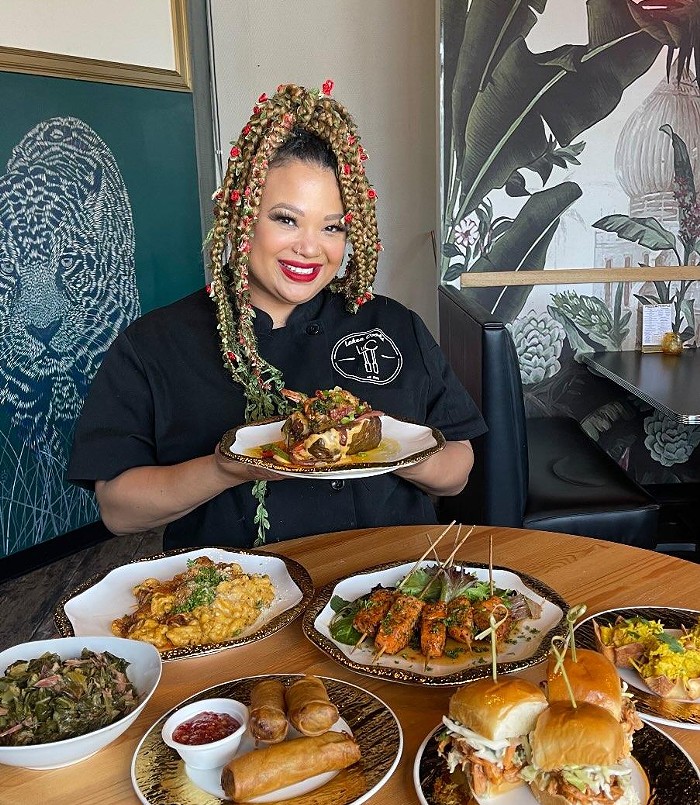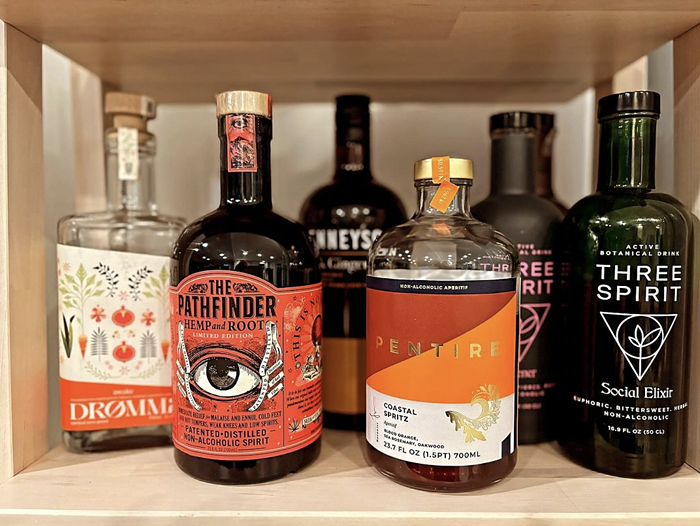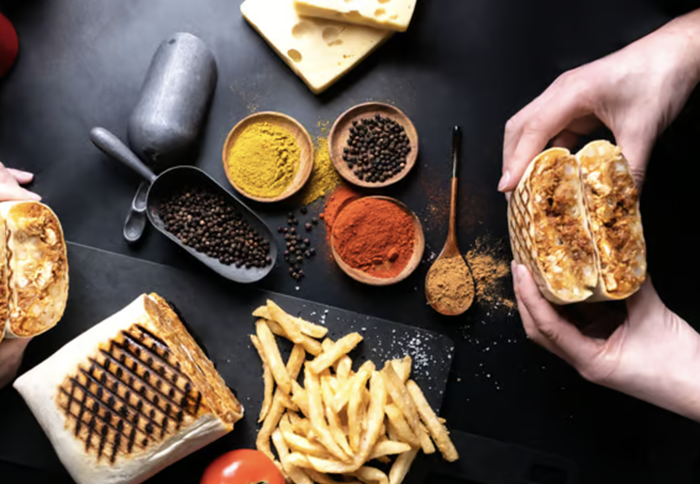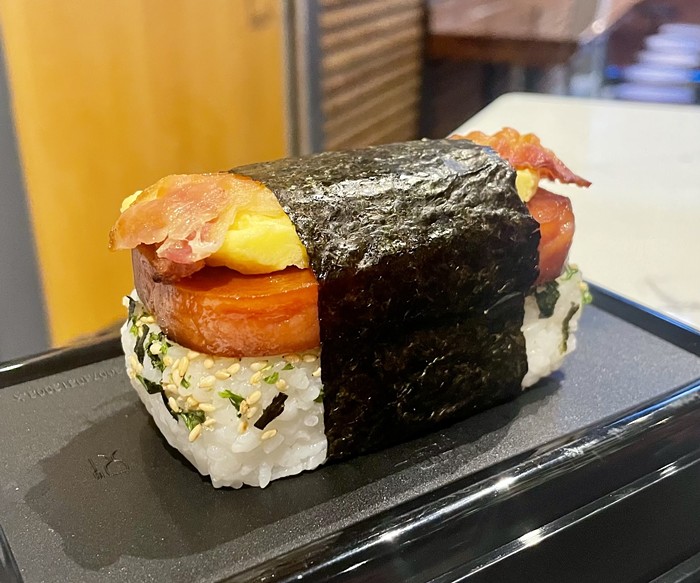Cheng Biao Yang has a long history in Seattle. In 2001, the chef opened Seven Stars Pepper Szechuan Restaurant in a small storefront on 85th Street in Greenwood. Two years later, he relocated it to a larger space in the International District. A few years later, Yang sold that restaurant and opened two others on the Eastside, Szechuan Chef in Bellevue and Spicy Talk Bistro in Redmond. Devotees of his fiery dishes like cumin lamb and Chongqing hot chicken followed him each step of the way. Yang eventually made his way back to the International District, where up until last year, he mesmerized diners by hand-pulling lamian noodles at Uway Malatang.
But the Szechuan tradition from which Yang cooks goes back even further. His latest project, Country Dough—a small sliver of a restaurant that opened in July, tucked deep inside Pike Place Market—makes this clear: "Over 1,800 years of history," its sign reads auspiciously.
Dough is paramount here, and it shows up in three distinct forms: flatbreads, noodles, and crepes. All of them are excellent. And while Country Dough's flatbread sandwiches are its most popular items, I'm actually partial to the crepes and noodles.
The "Chinese crepe" ($6.50) is a light, pliable, and springy crepe that's slathered with chili oil and a sauce of funky, fermented bean curd, and then wrapped around crunchy green leaf lettuce, cilantro, scallion, and, best of all, an airy, oily, deep-fried Chinese doughnut called youtiao. It's a wonderful array of textures that's made even better by a sprinkling of sesame seeds. Because the crepe is so eggy and light, you might find yourself more than halfway through it before you realize how massive—and filling—it is. You'll eat the whole thing anyway.
Before an order of the fantastic sweet and spicy dry noodles ($7.95) even reaches your mouth, you get to enjoy the thrill of watching the noodles get shaved by hand from a fat, white block of dough. They tumble into a massive pot of boiling water and, after just a few short minutes, emerge tender, slippery, and perfectly slurpable. Their irregular and beveled edges allow the deep crimson sauce—slick, spicy, slightly floral, and pleasantly numbing, thanks to Szechuan peppercorns—to cling to the noodles. As you slurp, the sauce coats your lips and tongue with chili oil, enhancing the tingling effect even further.
While the other elements of this dish, such as shredded carrot and lettuce, are basically unnecessary, the paper-thin slices of pork are wonderful. They're rich and fatty and, because they're cut so thin, also cling to the noodles. The noodles do all the talking, while the pork whispers sweet meaty things in your ear.
Now let's talk about those flatbread sandwiches, called guo kui. They're a popular street food snack in Chinese cities such as Chengdu and Xi'an, and also have their own fascinating history. According to a recent article in the food magazine Lucky Peach, guo kui has "a few origin stories that all suggest a military birthplace. One ancient general is said to have fed his hungry army without the use of cookware by directing his soldiers to bake dough in their metal helmets. Another tale describes it as a bivouac-baked bread, made so thick that soldiers could wear it as an arrow-proof vest."
These stories help explain a few distinct things about Yang's guo kui. After the dough is portioned out into small mounds, they are each rolled out with a small wooden dowel into flat disks. They are griddled on the top of a dented, worn silver oven that looks not unlike a beat-up helmet until they are nicely browned. Afterward, they are placed into the oven where they bake, tandoor-style, while clinging to the oven's walls.
The result is something like a pita, but much sturdier and thicker—although I wouldn't go so far as to say that the bread, if placed on my chest, would be able to stop an arrow. At first, I wasn't that impressed by the cumin-sauce flatbread sandwich ($5.50). I loved the flavor of the aromatic sauce—red-hot and rich with chili, Szechuan peppercorns, and earthy cumin—and the stewed beef, its connective tissue and gristly bits made soft and flavorful by a long, slow simmer, but the bread itself tasted chalky and dry.
But halfway through the sandwich, after the bread had time to absorb the sauce, it changed entirely. The bread was now soft and yielded easily with each bite but still held its structure and integrity. On my second visit, I shared an order of noodles with my husband and let my sandwich sit for a few minutes before I broke into it. And I was so glad I did.
Being able to watch food being made is one of the best things about Pike Place Market—the cheese at Beecher's, the Filipino food at Oriental Mart, the doughnuts at Daily Dozen, and, now, Yang and his team of masterful dough manipulators. Yang may have moved around a lot over the last decade, but he looks right at home at Country Dough, next to the Mexican Grocery, Piroshky Piroshky, stalwart Bavarian Meats, and across the hallway from the classic Seattle joint Emmett Watson's Oyster Bar.
I hope Yang sticks around so that locals and visitors alike will know his food, and Country Dough can become a part of Seattle history. ![]()



















